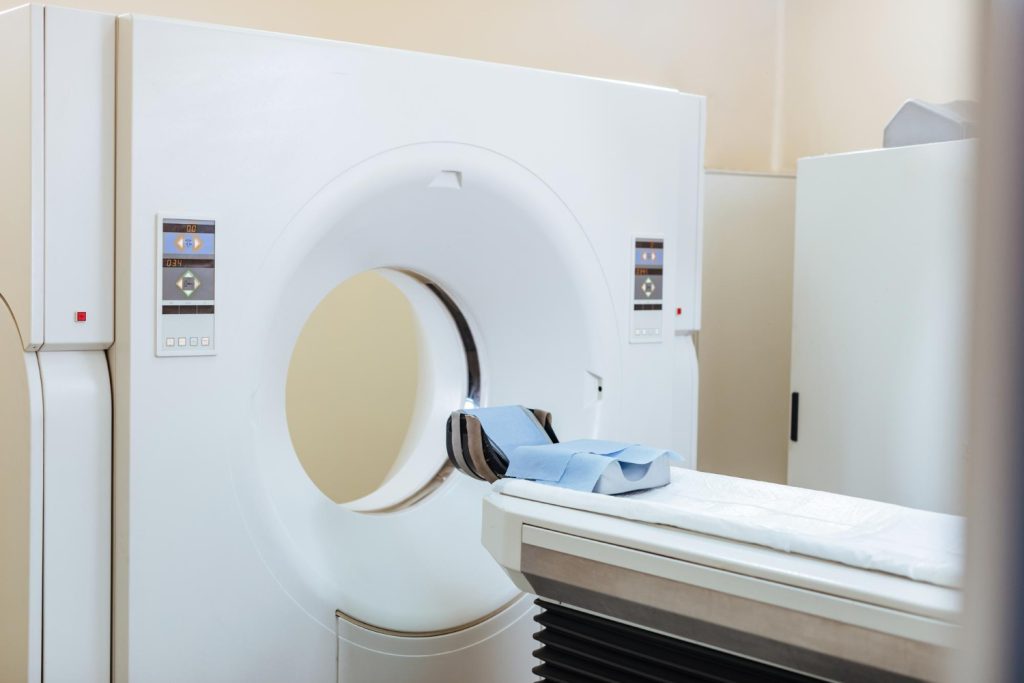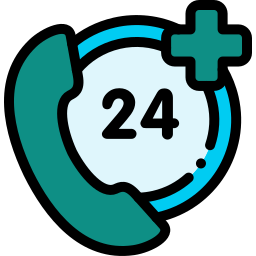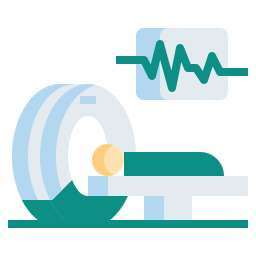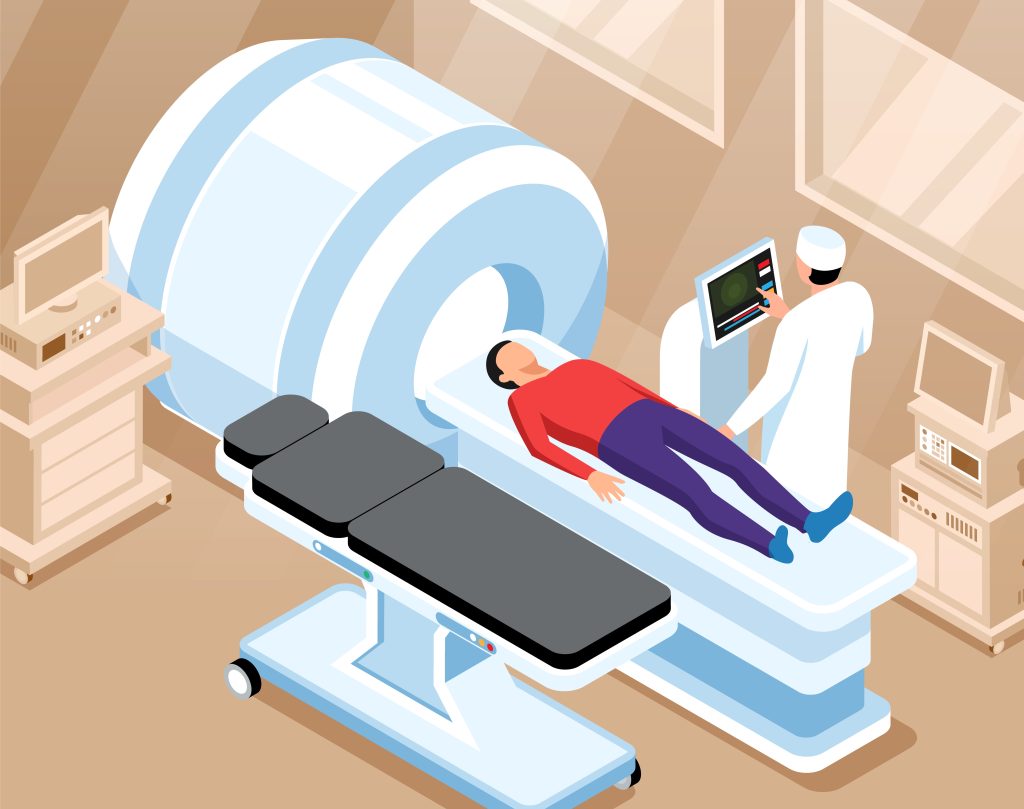
Overview
A CT (computed tomography) scan is a medical imaging process that creates finely detailed cross-sectional images of the body using X-rays and computer technology. Cancer, traumatic injuries, and internal organ damage are just a few of the illnesses that can be diagnosed and monitored using these images.
PROCEDURE
The following steps are commonly included in a CT scan procedure:
- Preparation: You’ll be asked to take off any clothing, jewellery, or other items that can obstruct the scan. A gown may be provided for you to wear. During a CT scan, you will be asked to lie on a table that slides into a sizable apparatus with a doughnut-like shape known as a gantry.
- Positioning: An X-ray tube that rotates around the patient inside the gantry emits a number of X-ray beams that travel through the body. The X-ray beams will spin around your body as the table moves through the scanner. To reduce image blurring, you could be requested to remain still and hold your breath for brief periods of time.
- Scanning: The area being investigated will be captured in a sequence of X-ray images by the CT scanner. Typically, the complete procedure lasts under 30 minutes.
- Review: A radiologist will examine the images, analyse the findings, and issue a report to your doctor.
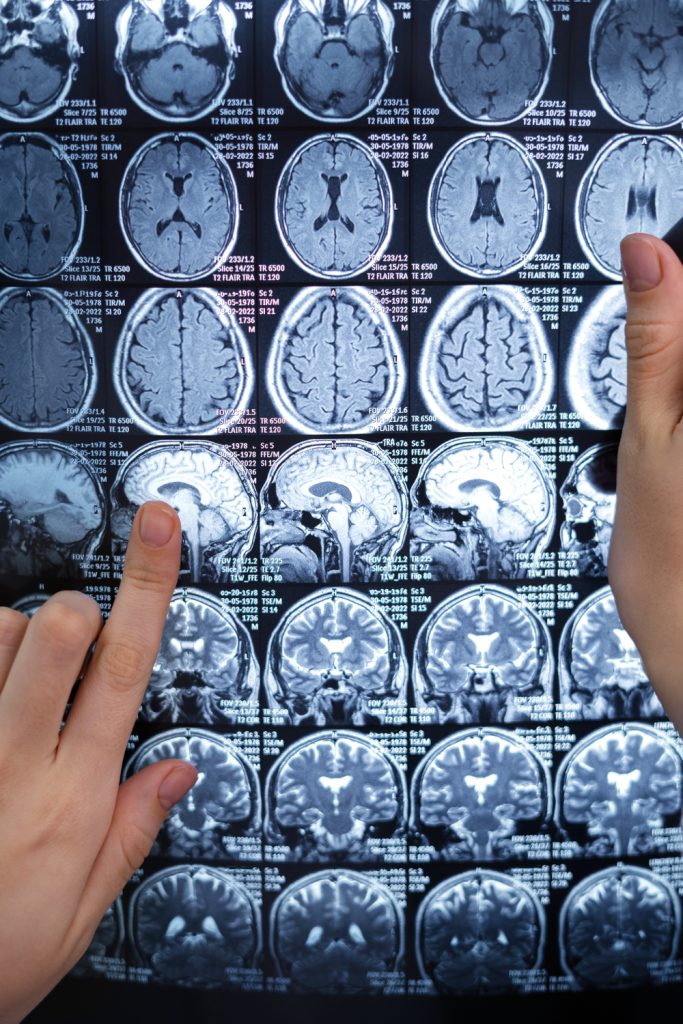
Conditions CT SCAN can detect ...
A wide variety of bodily parts and structures, such as the head, spine, chest, belly, and pelvis, are examined using CT scans. They are able to detect a wide range of conditions, including:
- Tumors: CT scans can be used to identify tumours in the body and determine their presence, size, and location.
- Blood clots: CT scans can aid in the identification of blood clots in the lungs, legs, and other body areas.
- Bone fractures: CT scans can aid in the early detection of fractures and other bone injuries, notably in the pelvis, head, and spine.
- Internal wounds: CT scans can help identify internal wounds, such as those brought on by slips and falls or car accidents.
- Disorders of the abdomen and pelvis: CT scans can be used to identify conditions, including appendicitis, kidney stones, and blood clots in the liver or spleen, that affect the organs and blood vessels in the abdomen and pelvis.
- Neurological disorders: CT scans can be used to look for issues like tumours, blood clots, and bleeding in the brain.
- Cardiovascular conditions: Coronary artery plaque build-up, which can result in heart attacks, can be found with CT scans.
- Lung problems: CT scans can be used to identify lung cancer, emphysema, and other lung disorders.
BENEFITS OF CT SCAN
CT scans have many benefits that make them an important tool in the diagnosis and treatment of a variety of medical conditions.
- Speed: CT scans are quick, finishing in only a few minutes. They are therefore perfect for circumstances requiring speedy and precise diagnosis, such as emergencies.
- Detail: CT scans create precise images of the inside organs of the body, which can be used to spot issues that conventional X-rays could miss.
- Versatility: A wide variety of bodily parts and structures, including the head, spine, chest, belly, and pelvis, can be examined using a CT scan. As a result, they are helpful for identifying a number of illnesses, including cancer, blood clots, and bone fractures.
- Non-invasive: CT scans don’t need any incisions or injections because they are non-invasive procedures. They are therefore safe and often well-tolerated as a technique.
- Effective for spotting early-stage cancers: CT scans have been proven to be successful at spotting early-stage cancers of the ovary, colon, liver, pancreas, and lungs.
- Help in planning treatments: Detailed images of internal organs, tumours, and blood vessels are provided by CT scans, which can be used to plan treatments like radiation therapy or surgery.
- Cost-effective: For many people, CT scans are a cost-effective solution because they are generally accessible and reasonably priced.
Machines Available For CT Scan At MSDC
At MSDC, we employ the most recent CT scan equipment to give our patients the highest quality care. The GE Pro Speed 2 CT Scanner, a potent imaging device that generates high-resolution pictures perfect for diagnostic applications, is one of the technologies we employ.
A multi-slice CT scanner, the GE Pro Speed 2 CT Scanner generates high-quality images quickly. It has cutting-edge features like a high-resolution detector that enables accurate body scans and a low-dose option that limits radiation exposure for patients. It also has a lot of different sensors that let us scan different parts of the body precisely and accurately.
Internal organs, blood veins, bones, and other bodily structures are frequently seen using this technique. It can be used to identify a variety of illnesses, including blood clots, cysts, and tumors. Additionally, it is used to plan surgical treatments, find interior damage, and track the development of a disease.Advanced features like automatic exposure control and automatic positioning are included with the GE Pro Speed 2 CT scanner, making it simple to use and lowering the possibility of human error. It can also create 3D images, which are useful for improving diagnosis and planning treatments.
With years of experience utilizing the GE Pro Speed 2 CT Scanner, our team of knowledgeable radiologists and technologists is ready to answer any questions you may have. Please get in touch with us if you have any inquiries regarding this machine or would like to set up an appointment.
